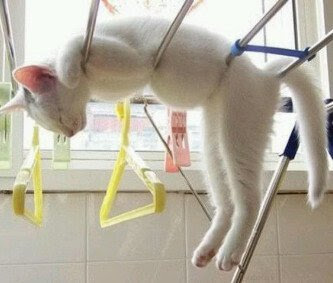Employers at interview and other career events often mention "poor interview preparation" among even the best and brightest applicants for their positions. This can refer to a number of things, including demonstrating an apparent lack of enthusiasm for the industry or not understanding the nature of the organization's mission or service. However, many students struggle with addressing some of the most basic interview scenarios due to lack of experience or forethought.
By : Geoff Falen : Director of Career Connections, St. Lawrence University
- "Why Don't You Tell Me About Yourself?"
- "Why Are You Interested In This Position?"
- Behavioral Interview Questions: Beware The Overshare!
This is actually one of the hardest questions for college students or recent grads to answer. In conducting mock interviews, I've observed two frequent approaches. The first is the student who starts with an exhaustive and time-consuming chronological list of achievements or life events. This means your interviewer is bored and/or annoyed by the time you're approaching something relevant or interesting, which does not set a good tone for the rest of the interview. Generally speaking, if you start your answer with junior high or worse -- elementary school -- it's not a good sign.
The second version is when the candidate begins the answer with, "I'd be perfect for this job because..." I call this response "premature explanation." Yes, it's good to be eager and to demonstrate your passion, but you still have to answer the question in front of you.
Rather than either of those strategies, try to strike a balance between giving too much information and jumping straight into your justification for applying. To do this, you should provide information about yourself, starting with your current academic background or interests. For a more complete picture, you could include what influenced you to choose your major or university. Next provide a broad overview of co-curricular activities (particularly if they demonstrate traits or experience helpful to the job -- i.e., teamwork, organization, leadership, communication skills, etc.) and close with perhaps something you like or do in your off-time that demonstrates a bit of personality, character, or motivation, such as service, a sport or hobby.
Yes, you'll be asked this, or some variant. Interviewers tend to take poor answers as evidence of disinterest or lack of commitment to the field. Unfortunately, many students have significant trouble articulating their reasons for applying. This is because they haven't given sufficient thought to why they want to do the job, figuring that demonstrating interest is enough by itself. The interviewer knows you're interested because you applied. So did every other applicant, which means you need to differentiate yourself by your answer. And the best time to think about framing your response is well before the interview, not immediately after hearing the question.
How do you address this question properly? Read the job description and research the organization in order to get a sense of what it does, who the audience is, then consider how your experience fits that field. Depending on your background, there are a variety of possible responses to start with. Variants might include "I've studied this area from a theoretical perspective, and I'm interested in seeing how that knowledge applies in practice" or "I see this as an opportunity to learn more about XYZ field" and "My prior internship experience has showed me that I really enjoy working with this population, and this position would allow me to help others while continuing to develop professionally." The crucial part is to follow up these broad statements with additional information and examples demonstrating what you learned or did, how you think it applies to the company and how it will enable you to perform the job successfully.
While some personal anecdotes can be used effectively in an interview, naïve interviewees sometimes pick inappropriate stories. This can happen easily during behavioral interview questions, which take past behavior as evidence of how you will perform in the future. I once heard a student discuss -- at unfortunate length -- an alcohol-fueled incident as a prior example of successful teamwork ("we put the fire out before anyone got hurt"). Next was the student who claimed that lying to her parents was an appropriate way to handle an ethical dilemma. Maybe so, but as an interviewer, I'd prefer examples that demonstrate your capacity for honesty and don't involve your dating life.
Among other things, a prospective employer is judging how you will represent the organization, so you need to show you are capable of professional judgment and discretion. Try to pick examples from class, summer jobs, internships and other activities that will translate effectively to the work environment and prove your maturity to the employer. This means that even if you're interviewing at an organic farm, it's not appropriate to exhibit your commitment to the cause by discussing the basement herbal project you've been cultivating for the past six months.
Don't let poor judgment and lack of planning torpedo your interview. Study your career center's interview practice questions and pre-select your stories and strategies. Do mock interviews with a counselor, video your performance and ask for comments. Alternatively, you could participate in an alumni interview program, find an online interview feedback site, or connect with a faculty or other mentor for presentation assistance. With some planning and practice, you can avoid missteps and handle these interview situations effectively and with confidence.


 Tak berhasil bukan karena gagal tapi hanya menunggu waktu yang tepat untuk mencoba lagi menjadi suatu keberhasilan, hanya orang gagal yang merasa dirinya selalu berhasil dan tak mau belajar dari kegagalan. Salam sukses dari Hots Spotz.
Tak berhasil bukan karena gagal tapi hanya menunggu waktu yang tepat untuk mencoba lagi menjadi suatu keberhasilan, hanya orang gagal yang merasa dirinya selalu berhasil dan tak mau belajar dari kegagalan. Salam sukses dari Hots Spotz.
https://orange777amp.com/
ReplyDelete